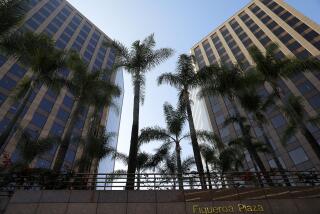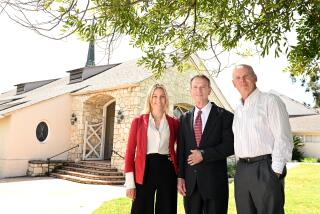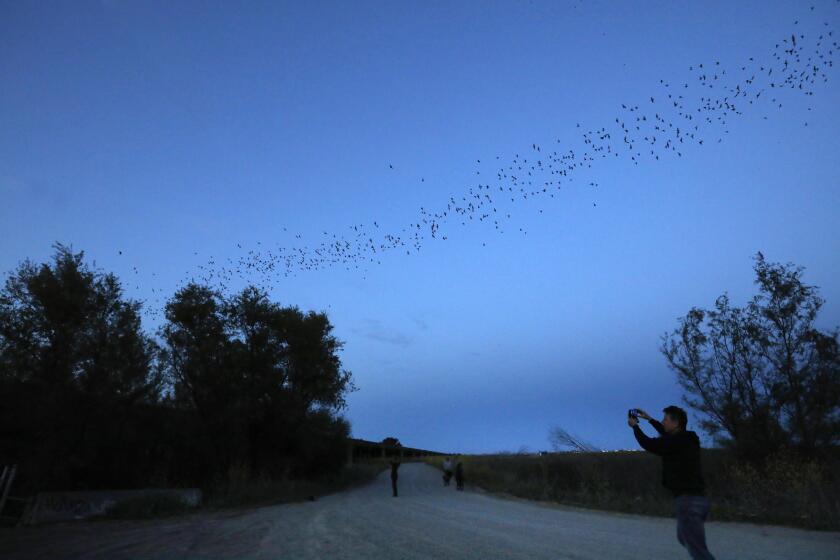Irwindale Files New Lawsuit Against Ex-City Consultant
Despite some conciliatory talk by city officials last week, the city of Irwindale has filed another lawsuit against Fred Lyte, its former redevelopment consultant.
In papers filed in Pomona Superior Court, the city contends that Lyte “fraudulently (concealed) material facts about a development project . . . which otherwise would have been rejected” in order to collect an extra fee under his contract.
The suit also charged Lyte with trying to disrupt the city’s negotiations with the Los Angeles Raiders to build a $150-million football stadium in Irwindale by spreading rumors and making false charges.
Lyte, part of the negotiating team that produced the initial accord with the Raiders, characterized the suit this week as “pure baloney, tailored to harass me.”
Since the City Council dismissed the consultant last December, the city has widely accused him of creating discord in Irwindale and blocked payment of more than $1 million in bills he has submitted to the city. Irwindale has also filed a lawsuit seeking more than $2 million in damages, claiming that Lyte had violated a provision in his contract forbidding him to recommend to the city projects in which he had a financial interest.
In a bitter exchange with Irwindale officials last month, Lyte charged that the first suit “will be laughed out of court” because he was never a city employee. The laws that define conflict of interest may not apply to him, he suggested.
The new legal action centers on the creation of a strip mall two years ago at the intersection of Irwindale Avenue and Arrow Highway, a block from City Hall.
According to the complaint against Lyte, the Hopkins Development Co. had agreed to build a shopping center on a two-acre lot on Arrow, but only if an adjacent 7,000-square-foot lot at the southeast corner of the busy intersection could be included in the package.
The smaller lot, with a 50-foot frontage on Irwindale Avenue, is owned by Irwindale Mayor Patricio Miranda.
According to the complaint against Lyte, Miranda had refused to lease the property to Hopkins because his constituents would perceive such an arrangement by a city official as a conflict of interest. Following the advice of Martin, Miranda “would not lease or sell his land to any party who would be involved in the shopping center development,” the complaint says.
But principals of Hopkins, the development company, three years ago formed a general partnership and negotiated a lease with Miranda. The complaint says Miranda did not know that he was dealing with a Hopkins subsidiary, and Lyte withheld that information in order to collect a 3% fee for bringing a new development to the city.
Miranda’s property, once the site of Miranda’s taco stand, now holds a Jack-in-the-Box outlet that shares a parking lot with a 10-store strip mall.
“The city did not discover the true facts relating to Lyte’s fraudulent concealment of information or breach of fiduciary duty until April, 1989,” the complaint says.
Times staff writer Ken Reich contributed to this story.
More to Read
Sign up for Essential California
The most important California stories and recommendations in your inbox every morning.
You may occasionally receive promotional content from the Los Angeles Times.










